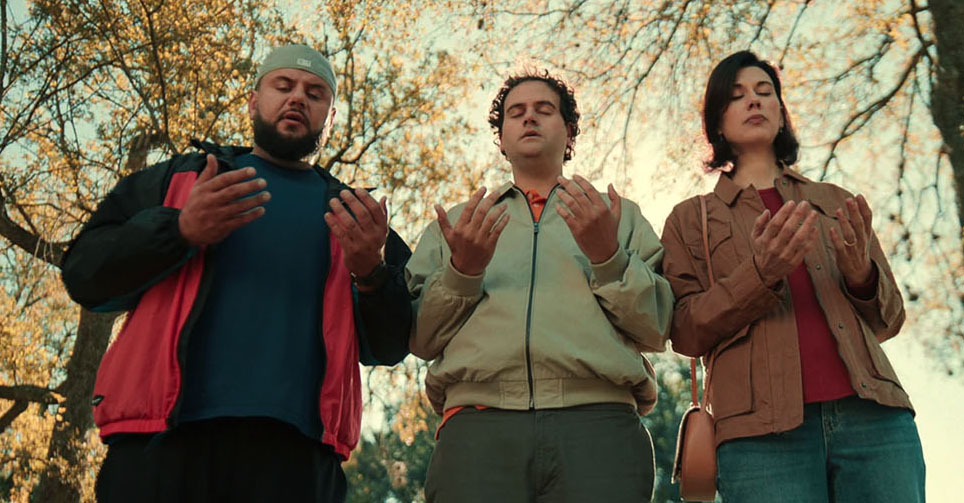Sarah Eltantawi
“This is where I bawled my eyes out for hours watching Mo,” a friend said to me recently, in the living room of his new home. I understood his feelings instantly and there was hardly a need to elaborate further. Mo, the new show on Netflix about the Palestinian-American Najjar family in Houston, centers on main character and eldest son, Mo, played by comedian Mo Amer. The series has provided surprising and vital catharsis for many Arab and Muslim Americans. I would liken my own sensation after watching Mo as akin to eating after not knowing I was starving. I also emerge haunted by the enormity of our trauma in American Arab and Muslim communities, and the shortcomings in the resources that are truly available to address it in the western psychological apparatus.
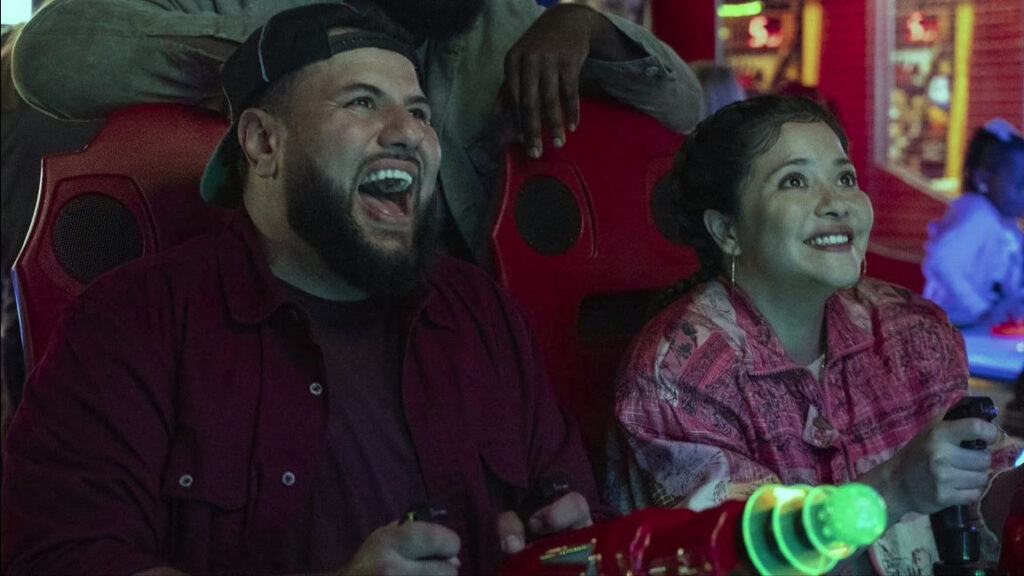
The series’ brilliant presentation of Mo’s trauma is a subtle but persistent leitmotif. It starts at an arcade one afternoon with his best friend and his girlfriend, shortly after accidentally learning that his father was tortured before he died, when Mo was an adolescent. After absorbing this news, he becomes addicted to lean, aka Purple Drank or Sizzurp. In the course of a passionate encounter with a game of Sponge Bob whack-o-mole, it becomes clear to everyone that Mo’s anger was starting to burst out of him. The friends eventually sit down to eat.
Mo’s Nigerian best friend, Nick: “So what’s good with that new lawyer?” (for the Najjar family’s asylum application; the family has been waiting for years).
Mo: “She’s on that vibe shit. You know, yoga, ommmm. I went in there for some legal advice, and it turned into a therapy session.”
Maria, Mo’s Mexican Catholic girlfriend: “You could use a therapy session.”
Nick: “Hell yeah. You can talk about what the hell happened over there with Sponge Bob.”
Mo: “I don’t believe in therapy. It’s a scam.”
Nick: “How is therapy a scam?”
Mo: “Cause, you pay some PhD $200 an hour, when you can talk to God, for free, anytime.”
Maria: “I don’t ever see you get out a prayer mat.”
Mo: “Yeah. I don’t walk around with a prayer mat all the time. What am I, Aladdin? This is not Disney. OK? Islam’s real practical. I could just pray right here if I wanted to. Just take out a tissue, put it on the ground, ‘bam.” (raises hands as if to begin salāt) Done. Alright?”
Maria: “Why don’t you just talk to someone?”
It’s not that Mo doesn’t want to talk to someone. The question is who, and in what context. A non-exhaustive list of the descriptions I’ve heard about therapy, growing up in my Egyptian-Arab-Muslim community, includes, “It’s a scam,” “Just another American business,” and “I am sure you are less crazy than the therapist.”
In conversation the subject of therapy was often met with derision and an eyeroll; if insisted upon, one became aware of a certain fear. Therapy wasn’t safe for us. “They” would never really understand, much less, care. There is also a critique of capitalism here, but it is not about economics per se, it is about the taxonomical culture capitalism inspires. It is a visceral distaste at the idea of categorizing life’s challenges and setbacks — the way life is — and understanding those experiences as (only) “trauma,” or blaming them (only) on the “family of origin,” or compartmentalizing that “trauma” into an analytical object to be toyed with and quite possibly magnified by the removed and often unsympathetic therapist. Moreover, there is a sense that one’s individual capacity to transform those challenges into strength and insight should not be outsourced to a paid intermediary — this process is the very stuff of resiliency; therapy would make one weak and dependent.
Instead, difficult feelings were to be downplayed, ignored, redefined, and, above all, hidden, lest they bring shame and recrimination on already vulnerable immigrant families and communities, as well as a demonized minority religion. I wish I could say that prayer was presented as an alternative to seeking psychic relief, but God was too scary and full of judgement for that. In spite of these attitudes — or, perhaps, in part, because of them — I have tried therapy several times in my life.
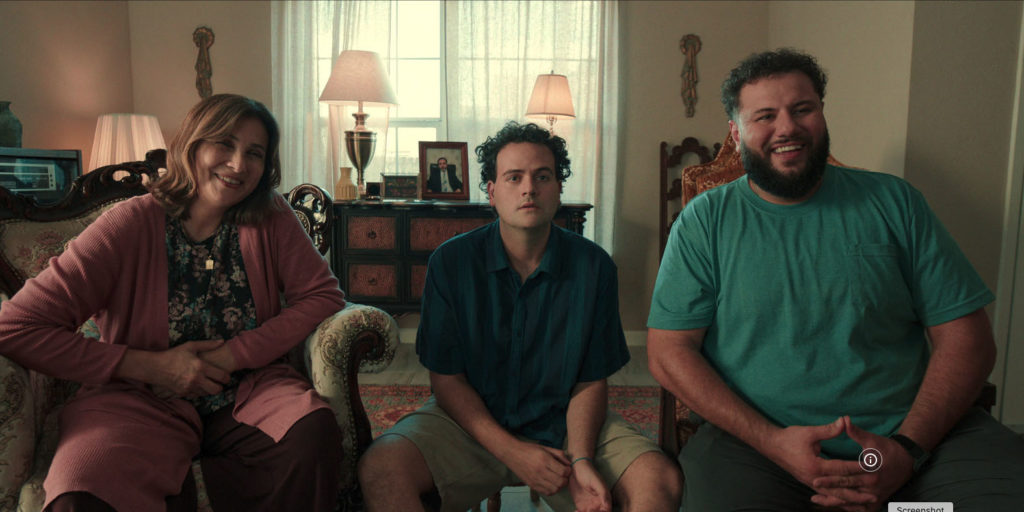
There is much to respect in the field of western psychology. The process of naming unhealthy psychological and mental states, and developing medical paths to heal them, is of undeniable benefit. It is hard to address what is not acknowledged and understood. It seems to me that problems can arise — as I believe Mo was signaling — in the dialectic exchange between therapist and patient, particularly when there are significant power disparities between the two parties, and cultural differences that can be existential.
In one example from my own life, the “white therapist” problem, which is to say a lack of shared cultural values regarding family, became recurrent for me. While I am not unsympathetic to the notion that trauma can been caused by one’s parents, I am also aware that insofar that is the case it is due to their own trauma; rather than view this fact as “making excuses” for them, I view it is an empowering form of empathy that helps heal generational trauma, much of which was foisted upon them by forces out of their control. This perspective does not disempower a person, rather it allows you to maintain your own structural integrity as a member of a family and community that you want to play a role in healing and elevating.
I have come across therapists whose analysis depends, to various extents, on demonizing Arab/Muslim/Middle Eastern societies, “their men,” and women’s status as an “oppressed” within that culture. As an autonomous subject with an individual subjectivity, if these are the conclusions one would like to draw for oneself about one’s own experiences (in my case, they are not), so be it; to have these frameworks imposed upon a person — no matter how subtly this is evinced — can be a form of cultural imperialism in an intimate space, often traumatizing in and of itself.
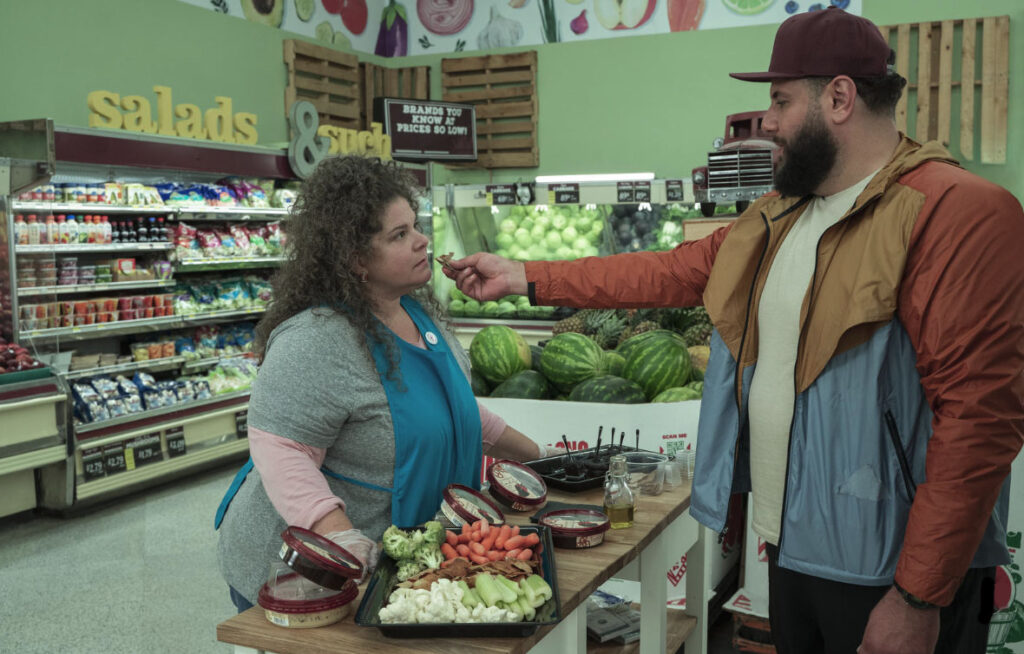
At one point, I thought a way to escape this problem was to pursue “woo woo” therapists, or those who spiritually identified with the “new age.” In the Pacific Northwest, the place where I decided to try this approach, such therapists were not in short supply. Not every memory with “Bonnie” (not her real name) was negative. She burned several pure beeswax candles during our dimly lit, late-afternoon winter sessions, and they were beautiful. Many of her comments were helpful and insightful. However, one day, I feel I had no choice but to lose confidence in our interaction. I related something my mother had told me recently, which was that she had never processed her own mother’s death. To this day she even avoids saying Allah yarhamha (may God have mercy on her soul), because that would be an acknowledgement that her death was real. As a result, said my mother, she has a knot in her stomach that never goes away.
“Oh,” Bonnie said nonchalantly. “She’s going to die young.”
I was stunned for several moments.
Her own mother was in the process of dying, so I found myself in a position of having to process her unfolding trauma in an attempt to get therapy for myself. This is only fair and human — but is it effective therapy? Moreover, when Bonnie uttered those words, another side of me kicked in — one that was out of my head and into the deeper reality — in this case, the absolute reality that she had just conjured a kind of evil foreshadowing on the life of my mother. Was a spiritual challenge not at my doorstep?
Shaking with anger, I said, “You can’t say that about my mother.”
“I think you’re turning your frustration on…”
“No. You were wrong. You can’t say that.”
The next time I heard from her, it was an email asking me for 1) payment, perhaps correctly surmising that I would never see her again, and 2) a request for me to research a subject I had mentioned in our session and provide her with resources. I submitted payment and deleted the email. Therapy had failed again, and may have left me worse off.
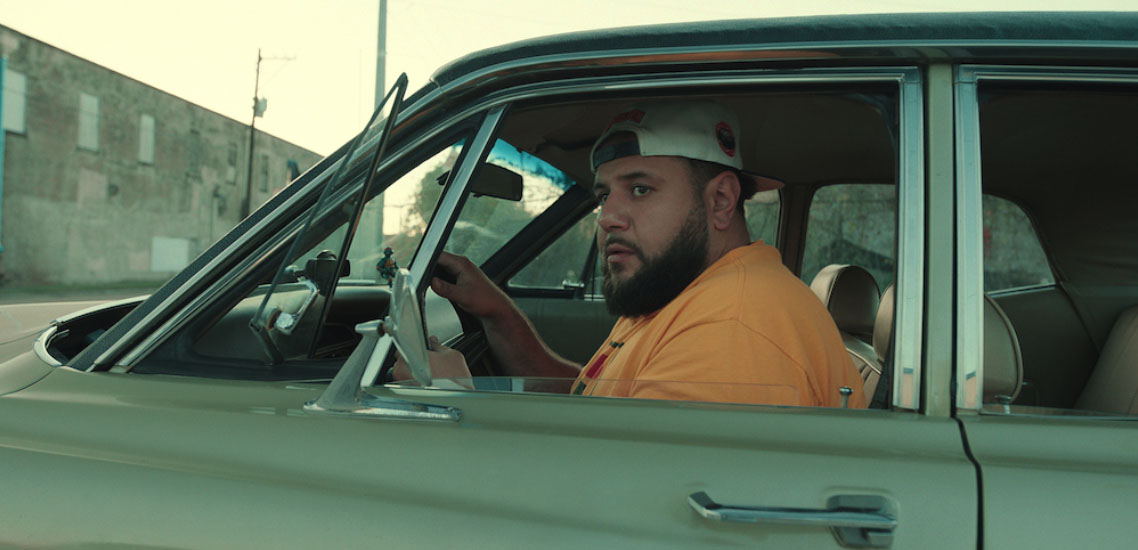
Mo hesitantly walked into the confessional at Maria’s church. The priest, beautifully played by rapper Bun B, exuded kindness and empathy even before he spoke. He began, “How can I help you son?” Mo is initially defensive, asking him not to call him “son,” since they “just met.” Mo quickly follows, “I don’t mean to be disrespectful. I’m Muslim. We usually confess straight to God.” At this point Mo begins to complain bitterly about the tactility and rawness of Catholic iconography; the nails in Christ’s hands, the blood. It is clear that he is recalling his own father. While Muslims revere Jesus as a prophet and one of the wisest of men, they do not believe in the trinity, or, in the Sunni tradition, in depicting prophets, and certainly not God, in any visual form. The priest pauses and responds thoughtfully to Mo’s litany of complaints. While he could have taken umbrage at Mo’s disparaging comments about the portrayal of Jesus on the cross, the priest gently clarified, “There’s no glory in suffering. But there is glory in sacrifice.” Mo fell silent and was chastened. In this moment, the two men — and the two traditions — had found a shared morality.
Mo’s emotional release was real in this encounter. (Mo Amer later revealed in an interview that the story of his father’s torture was based on his life, and that his preexisting close relationship with Bun B, who he looks at as a “big brother,” helped him feel safe and comfortable enough to do that scene.) Mo admitted that he blamed his father for leaving them. He discussed how he was angry at himself for failing, as an adolescent, to be the man of the house. It was moving to witness this raw exchange of vulnerability between two men. The priest asked Mo if he thought his father would want him to carry all of this sadness and anger, or if he would want him to be happy. The scene ends, cutting to a beautiful moment of cinematography: an open vista of olive trees, accompanied by the transcendent song “How Great” by Chance the Rapper. It moved me to tears in a way that I am quite sure the absence of the divine in a therapy session would not have.
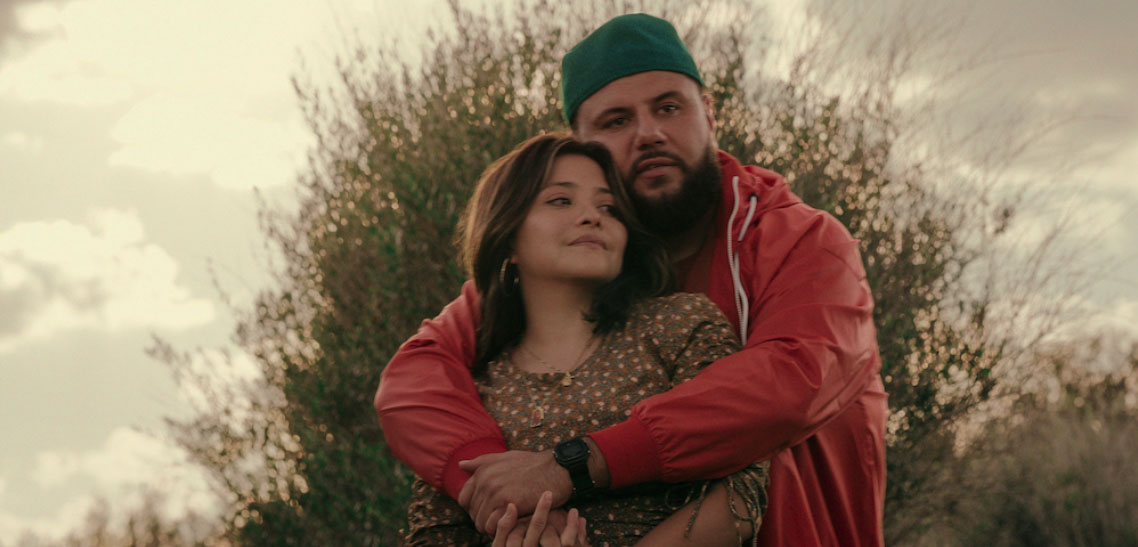
Mo is right that in Islam, we speak directly to God. But why not just speak? What is the purpose of the ritual of saying, “In the name of God, the gracious, the merciful,” then washing your mouth, nose, hands, face, ears, neck, hair and legs, laying out a plush prayer rug, making sure you’re modestly dressed, and then reciting the same verses of the Qur’an in the same order (with the possibility of adding more), and finishing with wishing peace upon the angels on both sides of you? It is only after you have done all of this you can then speak to God directly. What I have come to realize is that the ritual is a spiritual exercise you must practice to earn the experience of standing before God. Seen from this perspective, it makes sense that one would need to expend effort to speak to the creator of the universe. The ritual inculcates respect for a majesty outside ourselves. The practice of cultivating this perspective, in itself, can be psychically healing.
While Mo was taken aback by Catholic iconography, it is not difficult for me to understand why Mo would prefer the Catholic confession to therapy. In addition to understanding his relative comfort with the priest, it is clear that Catholic confession worked where therapy would not have. Why? First, it is not insignificant that the priest was African American, and would thus be more likely to understand his experience of marginalization. How many spaces do we really have for brown and black men to process their trauma safely? But I do not think that is the main factor that made confession work. Rather, the key was the presence of a third referent — Jesus — to which both men could defer; a common referent for whom both men had tremendous respect, albeit in different ways. Mo felt comfortable in dialogical and empathetic exchange with a Catholic priest during confession, because they were comparing both of their experiences to the sacrifice of Jesus, who stood outside their conversation as an ideal. The holy is present in this form of exchange, whereby a certain healing power is conjured through the example of Jesus’ sacrifice. This power is conditioned on the distance the figure of Jesus creates in the power of the priest — to Mo, just another man — to help heal Mo.
In other words, Mo can trust the priest insofar as the priest places his trust in Jesus — not his own mind. There is reduced danger of megalomania in this relationality (strictly speaking), and of judging one person based on their religion or ethnicity by a person from different ones. The presence of an afterlife in both Christianity and Islam allows Mo the possibility of comfort about his father when talking to the priest, but also creates a shared intellectual scaffolding between the two men, with which to build a theoretical possibility of a different, safer world.
It remains astonishing to me that the simple portrayal of Palestinians as human beings — as I know them — as people who love their mothers, sacrifice for their families, have faced huge adversity and violence, and have a very delicious cuisine that is centered on olive oil — is so very revolutionary on an American screen and has had such a profound effect on so many of us.
But I must say that I was just as moved by the show’s depiction of Islam — again, the Islam I know. What I loved about Mo’s portrayal of Islam and Muslim practice is that it was free of the ham-fisted caricatures that are so common in both western and Muslim depictions — the former with its insistence on linking Islam with foreignness and violence, the latter with its insistence on linking Islam with rigid practice, hijab, and moral simplicity. Neither extreme captures the full humanity of who Muslims are. Mo comes much closer. There is human imperfection in the form of drug addiction; there is cultural and social complexity in the form of marrying outside one’s race and religion; there is an actual representation of reality which is that the majority of Muslim women do not wear hijab, in spite of many Muslim male conservatives’ obsessive insistence. (It goes without saying that most women who do wear hijab — especially in the U.S. — do so of their own accord, but I have found that even they tend not to appreciate the external pressure.)
Mo did an outstanding job of showing a more universally agreed upon, and beautiful aspect of Islam, in a scene where Mo, his brother, and his sister, visit their father’s unmarked grave under a clear Houston sky. In a moving and serene moment, they stand in front of their father and recite verses from the Qur’an that wish peace and salvation for the dead. This is the oneness, tawhīd, that is the best of Islam; an ordering of the universe, a submission to God to cope with fates we do not control. This submission is easily available to us with a simple prayer in the company of those we love in this world and the next. And having taken part in this ritual, we can move back into the world with renewed strength that is built on this fundamental sense of precarity and humility in the face of the larger order. I am so grateful to Mo for this genuine portrayal of Islam as a gentle and non-ideological spiritual force that faithfully accompanies the challenges of everyday life.



